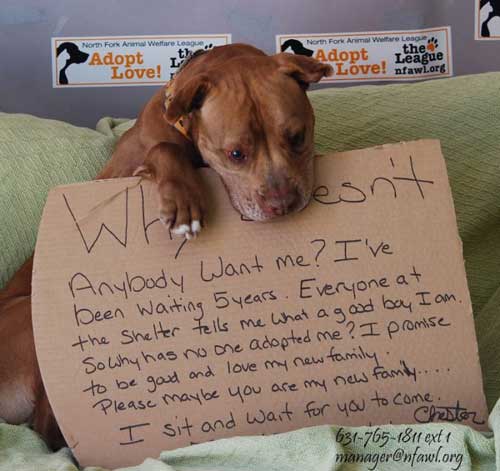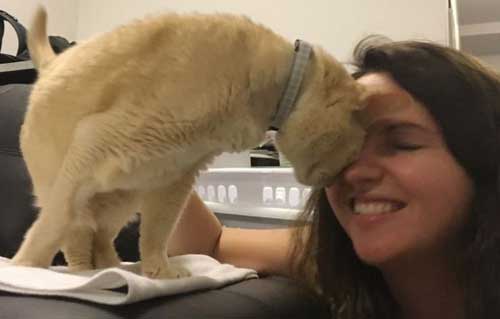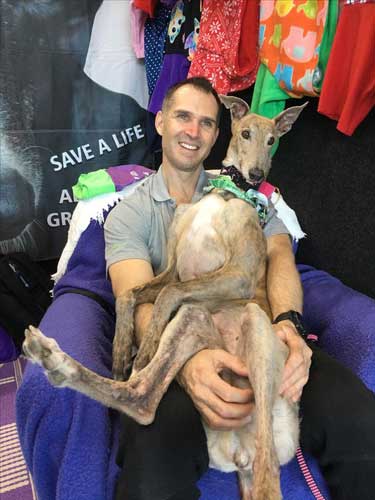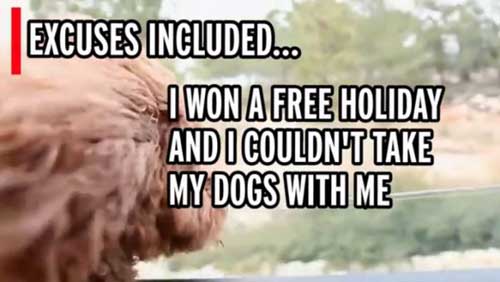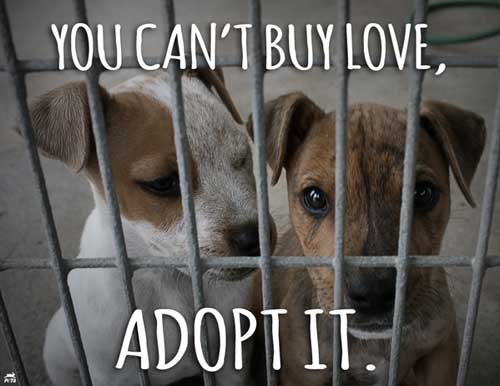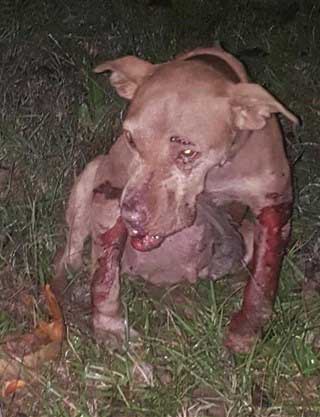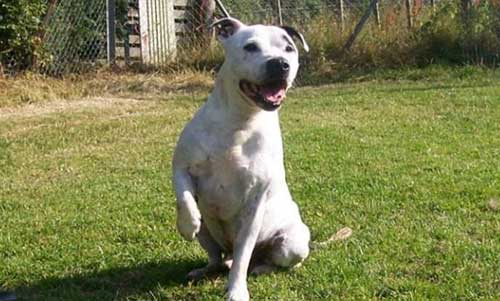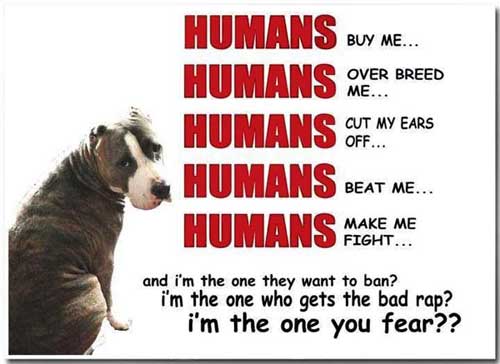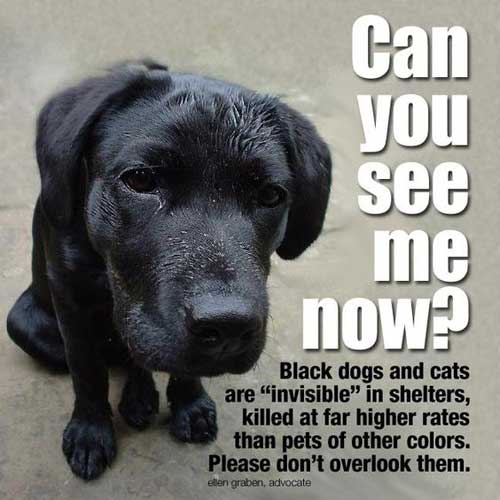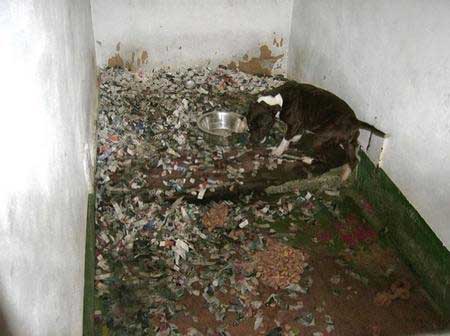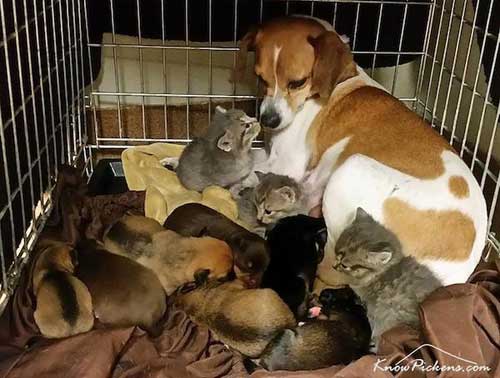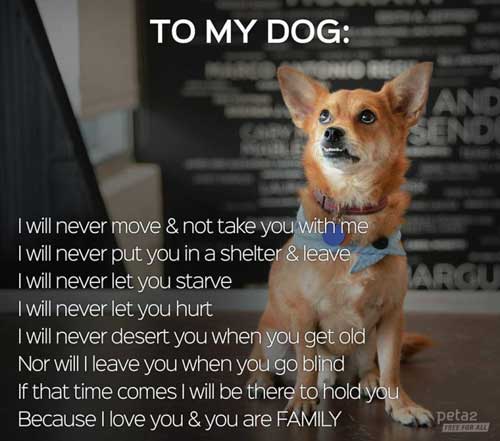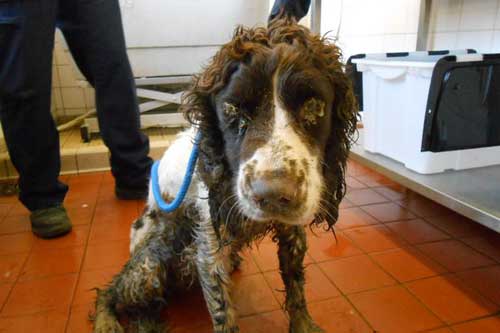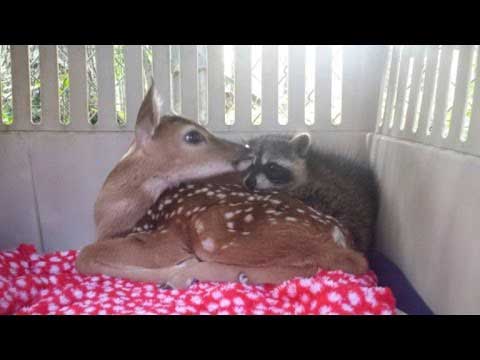- Home
- Save A Pet
- Why Adopt A Rescue Pet
Why Adopt A rescue Pet | all You Need To Know
By Susan Donaldson, B.A. (Hons), Animal Campaigner
Why adopt a rescue pet? Well, you save the lives of innocent animals. You also do this when animal sponsoring and fostering.
On this page, you can learn about the issues facing abandoned pets, and how you can help.
Contents
- 1. Why Millions Of Innocent Pets Are Put To Death Each Year
- 2. Save a Life – Adopt A Rescue Pet Or Sponsor An Animal
- 3. The Reason Millions Of Animals Are Abandoned Each Year: People
- 4. Ridiculous Reasons For Abandoning Dogs
- 5. People Brand Their Pets Aggressive When They Are Not To Justify Abandoning Them
- 6. Why It Is Best To Adopt Pets & Not Buy
- 7. Not Only Domestic Animals Need Homes
- 8. Look Out For Fraudulent “Rescues”
- 9. Breeds That Are Victims Of Bad Ownership
- 10. Unbalanced Reporting Giving Breeds A Bad Name
- 11. Which Breeds Are Hardest To Re-home?
- 12. Breed Specific Legislation (BSL)
- 13. Other Shelter Pets Put To Death First
- 14. How Are Abandoned Pets Euthanised?
- 15. The Worst Thing You Can Do
- 16. There Is Nothing As Rewarding As Saving A Rescue Pet’s Life
- 17. Rescues Re-home Puppies And Kittens Too
- 18. All Pets Are Thoroughly Assessed
- 19. One Quarter To One Third of Shelter Dogs Are Purebred
- 20. Questions You May Be Asked Donations And Possible Home Checks
- 21. Animal Fostering And Sponsoring
- 22. Pet Quarantine – Adopting From Abroad
- 23. Think You May Like To Adopt Sponsor Or Foster An Animal?
- 24. Many Other Ways You Can Help Stop Animal Suffering
Why Millions Of Innocent Pets Are
Put To Death Each Year
The situation exists due to a number of factors:
- The huge problem of pet abandonment due in the most part to owners not taking their commitment seriously.
- The fact that people often do not spay and neuter pets
- There not being enough places at rescues that do not kill the animals (‘No Kill’ rescues).
- Not enough people animal fostering and sponsoring or adopting.
- Pets are constantly being bred by people attempting to make money, taking potential homes from abandoned Pets needing adopted, and causing them to be put to death in their millions every year.
The Cycle Continues
Despite the millions of innocent dogs and cats being destroyed through no fault of their own, breeders continue to breed, and people continue to buy newly bred pets. This encourages breeding and inadvertently causes more innocent animal deaths.
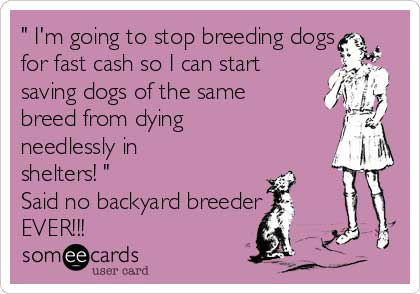 Why Adopt A Rescue Pet
Why Adopt A Rescue PetWhile people are willing to buy newly bred pets, there will always be greedy people willing to supply them
Many people buy puppies from pet shops, not realising they are supplied by incredibly cruel puppy farms or bad breeders.
Each puppy and kitten bred and bought condemns innocent pound and shelter animals to death.
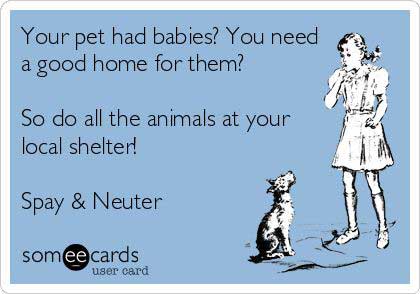 Why Adopt A Rescue Pet
Why Adopt A Rescue PetConstant new litters of pets kills chances of shelter pets being adopted
Save a Life – Adopt A Rescue Pet Or Sponsor An Animal
Animal rescues are often run by animal charities or non-profit animal welfare organisations. Many smaller rescues are run by private individuals.
Many shelters – especially municipal ones that local authority ‘dog catchers’ use – put animals to death when they are not claimed, rescued or adopted within a short time limit. This can be a week in some areas, but as little as a number of hours in other areas.
Blame Is Often Laid In The Wrong Place
These pounds and shelters get a lot of negative attention. They are blamed for killing animals, and are told they have blood on their hands. They are not the people who cause the problem.
Many of the animals that go into these ‘death row’ pounds are put to death. If you adopt rescue pets from these shelters, you save the life of the animal.
If you adopt from a rescue who saves at risk dogs from death row at local authority pounds and shelters, you save a life by freeing up a life-saving rescue space with your adoption.
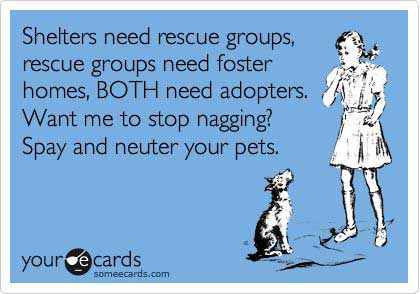 Why Adopt A Rescue Pet
Why Adopt A Rescue PetAdopt a rescue pet, or foster one, and always spay and neuter
Foster Or Sponsor
You can also sponsor rescue pets that cannot be re-homed (see here for more details). By doing so, you free up the animal rescues funds to continue saving other animals from suffering and death.
If you can look after a pet in the short term, but can’t commit long term to adopting, you could foster. You would be providing an additional life-saving rescue space.
Helping In Other Ways
There are many other ways you can help save rescue pets too. You can encourage others to adopt rather than buy, foster, sponsor, and spay and neuter pets. Online you can cross post, and raise awareness of all the issues. Have a look at the many ways to save a pet, article for what else can be done.
The Reason Millions Of Animals
Are Abandoned Each Year: People
People sometimes wrongly believe the rescue pets must have inherent problems to end up in animal shelters. This is incorrect.
The vast majority of the time, it is because they have been badly let down by humans. This may be because of their owner's problematic, personal circumstances, or their willingness to give their pets up for their own convenience.
Common reasons for dogs being at
animal shelters are that the owner
- Has to be out at work all day
- Had a relationship broken up
- Moves to a property that doesn’t allow dogs
- Has a baby so don’t want a dog any more
- Becomes ill or immobile and unable to care for pet
- Passes away
- Gets evicted from home
- Did not realise what hard work a puppy was & cannot manage it
- Can no longer afford a pet
- Has lost interest in a pet
- Does not neuter their pets
- Breed their pets, attempting to make money when it is well known that there are not enough homes for existing pets
- Does not want a dog when it is old
- does not want a dog when it develops special care requirements
- Finds a dog too much hard work and cannot be bothered to train it properly
Contingency Plans
Although there are legitimate reasons in the list, you may notice that much of the time, their excuses are situations that one would expect could happen in life, and that owners of pets should have contingency plans for.
The fact they do not show that many people do not understand that having a pet is a commitment for the natural lifetime of the pet, and they must have contingency plans for if their circumstances change.
This can result in the pets they purport to love, suffering terribly emotionally. Who wouldn’t if they were abandoned by someone they loved and trusted?
Greyhounds, Lurchers and related breeds are often overlooked by adopters, but make wonderful rescue pets. Contrary to what is sometimes believed, they do not need a lot of exercise.
The person in the picture below is just one of many that have only positive things to say about their adopted rescue dogs. Adopt a rescue pet to find your best friend.
Ridiculous Reasons For Abandoning Dogs
There are more ridiculous reasons than these common motives above for people giving up their pets. These include people who got rid of their dog because they had new flooring fitted and thought the dog may mess it up.
Even more absurd are the people who deserted their dog at a shelter because they re-decorated and the dog no longer went with the decor!
However, at least these people are honest about why they are abandoning their pet.
Some people think animal rescues exist to give their dog or cat to when they become a bit of an inconvenience. They do not realise that for every rescue space taken up at a “no kill” rescue, there are numerous out pets that end up being put to death at local authority pounds because there are no rescue spaces available.
This article describes the more ludicrous reasons people have given for giving up their pet.
People Brand Their Pets Aggressive When They Are Not To Justify Abandoning Them
When there is nothing wrong with the dog or cat and the owners simply cannot be bothered looking after it any more, people feel they need to give a better reason to justify why they get rid of their pet to a shelter.
Therefore, they often lie about the pet, saying it bites or has other behavioural problems. Sadly, many dogs that owners say are aggressive are destroyed, as the shelters do not want to risk re-homing them if they may do harm.
Some owners don’t bother to take their pet to a shelter at all. They just throw the vulnerable animal out on the street to starve and freeze to death. Some even kill the pets that trusted them, often in sickeningly inhumane ways.
The image below shows a former Shelter dog giving their adopter kisses. Adopt a rescue pet and you could be adored like this.
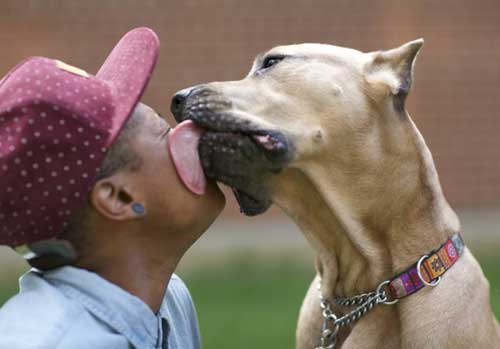 Why Adopt A Rescue Pet
Why Adopt A Rescue PetFormer shelter dog and owner
WHY ADOPT A RESCUE PET
Why It Is Best To Adopt Pets & Not Buy
There are many reasons it is better to adopt a rescue pet instead of buying one:
- If you adopt a rescue pet, you save an innocent life
- They are often vaccinated and neutered – that means fewer vet bills and a healthier pet.
- Regarding dogs, mongrels/mutts/cross-breeds have the least health problems caused by in-breeding – meaning fewer vet bills to come
- They are often already house-trained (dogs/cats)
- With adult animals, you know what personality you are getting because their personalities are already developed, unlike with a baby – they can end up with a personality different to what you hoped for, even if you try to mould them in to what you want.
- Reputable animal rescues assess the temperament of an animal. They can match the animal with a prospective owner, if required
- Generally, the older the pet is, the less wild and hyperactive it tends to be, especially if neutered – baby animals can be very hard work – especially puppies!
- If you adopt a rescue pet, many rescues let you take pets on trial, so you can tell if they are the right one for you before committing.
In Addition
- If you adopt a rescue pet, you are not making the problem of pet
overpopulation worse, like you would be if you bought pets while so many are put to death due to not finding homes. - Children who are around pets such as cats and dogs in the first year of their lives are far less at risk of developing allergies to pets – save a rescue pet's life & improve your child’s life at the same time.
- There are further health benefits to owning a dog: Owners generally get more exercise due to dog walking, and petting dogs is therapeutic. Doctors are known to recommend activity and interaction with dogs as a form of treatment. Therefore, by adopting a dog, you may not only be saving the dog’s life, but also your own!
- Burglars are deterred by adopted dogs just as much as any other dog.
Not Only Domestic Animals Need Homes
All kinds of animals, such as sheep, cows, ex-battery farmed hens, donkeys, horses and reptiles can be adopted from rescue shelters and sanctuaries.
Any animal – and breed of animal – that can be bought, can
need rescued and re-homed.
Below shows an adopted ex-battery hen's before and after photo. Such hens live their lives in small cages on farms. A lucky few get rescued and rescued by charities and adopted, but the majority are slaughtered when they are past their usefulness to the farm.
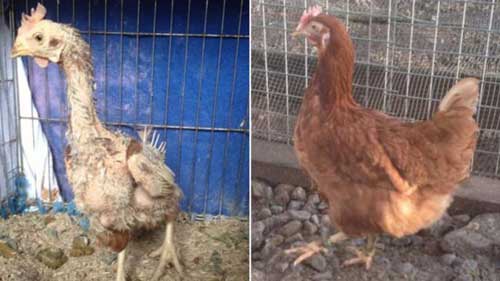 Why Adopt A Rescue Pet
Why Adopt A Rescue PetAdopted ex-Battery Hen before and after
Look Out For Fraudulent “Rescues”
More and more people are getting wise about the cruelty of puppy mills, and are avoiding them.
Puppy Mills Pretending To Be Rescues
As a result, fake animal rescues are being formed that are really just fronts for cruel puppy mills.
They advertise their dogs on pet adoption sites, so they can sell the dogs to people who think they are adopting a pet in need.
Some have their own animal rescue website where they put the puppy mill dogs up for “adoption”.
Far from helping stop cruelty and suffering by helping an animal in need, this is funding the continuation of cruel puppy mills.
Fake Rescuers Living Off Donations Meant For Animals
There are also “rescues” or “rescuers” whom just use animals to supply them with an income. Sometimes “rescuers” can claim to need donations to save dogs and cats from the streets or local authority pounds and shelters.
They appeal for money for their food and veterinary bills, but really the animals are receiving little or no care, and are sometimes being hoarded. These rescues are sometimes in a different country to where most of its supporters are from.
For instance, people in the U.K. have been scammed by rescues elsewhere in Europe.
There are, of course, many genuine rescuers in foreign countries, and it is often difficult to tell the difference.
In one case, a sanctuary in Cyprus was accepting donations from kind supporters to sponsor animal residents for a whole year, but were putting the animals to death as soon as they had got that sponsorship for them.
To find out the best way to tell the difference, do as much research into the rescue as possible and talk to other supporters to find out their experience of the rescue.
Breeds That Are Victims Of Bad Ownership
Certain breeds, such as Staffordshire Bull Terriers in the UK, and Pit Bulls in the US, have become victims of being popular with irresponsible, high-risk owners.
The breeds are naturally the most loving, gentle, affectionate and tolerant dogs. They are also known to be superb with children.
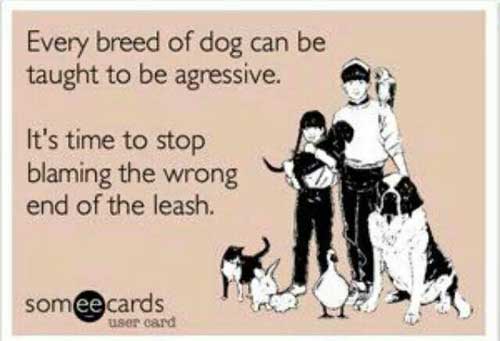 Why Adopt A Rescue Pet
Why Adopt A Rescue PetStop blaming breeds for their behaviour
They Are Exploited
The fact that these dogs are also extremely loyal, keen to please their owners, and will even endure a large amount of pain to please them, is exploited by these people.
They will buy the dogs as puppies and often train them to be intimidating status symbols, weapons, and sadly, victims of dog fighting.
The dogs become associated with the culture of anti-social behaviour in peoples’ minds, which makes people wary of them.
This behaviour also leads to certain dog breeds becoming victims of Breed-Specific Legislation. This happened in the UK and has happened in many other countries. It leads to innocent dogs, who have done nothing wrong, being taken away from their families.
In numerous instances, they are put to sleep. If authorities ever seize your dog because it may look like a breed banned under BSL, never, ever, sign anything. Do not sign, no matter what the pressure to do so.
Greed Can Often Make People Breed
Irresponsible owners commonly do not neuter their dogs, and breed them in a selfish and thoughtless attempt to make money.
This means potential homes are taken away from abandoned animals who need them, so there are always a high number of innocent shelter dogs being put to death.
Unbalanced Reporting Giving Breeds A Bad Name
The media feed fear by reporting scare stories about breeds such as Pit Bulls and Staffordshire Bull Terriers. It leads people to believe that the breeds are bad, rather than people being responsible for how they train their dog to behave.
It is not the fault of the dogs that a certain section of society is attracted to abusing and exploiting them in these ways. Sadly, this leads to certain breeds becoming victims of cruel and unfair BSL.
If The Attacker Is Tiny, Cute And Cuddly
The Media Is Not As Interested
It has been found that the media choose not to report in a balanced way. For instance, when dog breeds that are considered more “cute and cuddly” by the public, have behaved in an aggressive and violent way, they are not interested in reporting it, but when it involves a Staffordshire Bull Terrier or Pit Bull, they are.
Reporting Influences People's Perception Of the Breeds
This biased reporting sadly sets people against the breeds. As a result, when people want to adopt a rescue pet, they often avoid these breeds.
A great reason to adopt is that you can save the life of a pet that is usually overlooked, and that without you, may never know happiness and love.
A “cute and cuddly” Pomeranian dog, like the one shown below, attacked and killed a young baby in Los Angeles. It was not as widely reported as it would have been if it had been a Pit Bull type dog.
Which Breeds Are Hardest To Re-home?
In the UK, shelters are inundated with Staffordshire Bull Terrier type dogs – the RSPCA states that around 80% of dogs in their care are Staffies or Staffie crosses. In the US, they experience a similar problem with Pit Bull Terriers.
They Are Naturally Affectionate
Playful And Loving Breeds
By far, the vast majority of people who adopt pet Staffies or Pit Bulls, find them to be extremely affectionate, loving, tolerant breeds.
To learn more about Stafford Bull Terriers, Pit Bull Terriers and other breeds less popular with adopters, see the So-Called Dangerous Dogs And Overlooked Shelter Pets page.
Horrifying Statistics
Because many Pit Bull puppies are originally bought by high risk, irresponsible owners, it is estimated that only 1 in 600 of these dogs finds a permanent, loving home.
This means that the other 599 live all, or part, of their lives in rescue shelters, are put down, abused, or live on the streets where they eventually succumb to injury, disease, cruelty or starvation.
If you would like to adopt a rescue pet, please consider adopting one of these affectionate, loving, soft breeds. They are at shelters through no fault of their own, and are so often the breeds put to death first.
You can save the life of one of these less fortunate pets and let them know what a loving home feels like.
In the image below is Buster. His owner says of him and their other Staffie dog, Sasha, adopted from Scottish Staffie Rescue, “Love them! Great nature, great with the kids and both mine are friendly with other dogs.”
Staffordshire Bull Terriers are well known to be good with children. adopt a rescue pet like Buster and you will be saving an innocent life.
Breed Specific Legislation (BSL)
Pit Bulls have been outlawed in the UK, tragically becoming victims of Breed-specific legislation. This was a result of certain elements of society training naturally gentle and affectionate pit bulls to behave aggressively, which led to a few attacks on people.
Pitbulls and Staffies are also associated with dog fighting, which is incredibly cruel.
“It has nothing to do with the size or breed.
It has to do with who is behind the dog.”
- Cesar Milan
Other Shelter Pets Put To Death First
Older cats are often overlooked, as people tend to prefer to adopt kittens. The same goes for older dogs and older rescue pets in general. If you choose to adopt a rescue pet who is older, there are advantages to that.
They are usually a lot calmer than younger pets, and a lot less work to look after. For instance, if you are an older person, you may be better suited to adopting an older, calmer dog.
If you do adopt a rescue pet, please consider the wonderful overlooked animals.
Did you know?
Dark-coloured dogs, especially black dogs, tend to be left in shelters longer than light coloured dogs and more are put to death, especially if larger.
Their chances of being put to death first are further increased if they are old or have any special needs.
The poster below highlights black dog syndrome – dark-coloured, larger dogs are less often adopted, meaning they are more often put to death. If you adopt a rescue pet, please consider these overlooked dogs.
How Are Abandoned Pets Euthanised?
In the UK, animals are held by the local authority pounds and shelters for seven days, except in Northern Ireland where it is five days. In the US, where the problem of abandoned dogs is worse, it can be as little as 72 hours.
If it looks unlikely that the dog will be claimed, then towards the end of that time, some lucky dogs have pound pullers who desperately try to find them life-saving rescue spaces.
In the UK, those who either do not have pound pullers trying to find them rescue spaces, or run out of time to find one, are normally given a fatal injection of sodium phenobarbital by a vet. In the US, methods considered more cruel can be used.
They are sometimes taken to the veterinary surgery for this, even if they are known to be terrified of the place. It would be kinder to have the vet come out to them, so they are not in a place that causes them to feel terror in their last moments, but they are taken to the vets' surgery because it costs less that way.
Cruel Methods Of Euthanisation Are Still In Use
In the US, different states can use different cruel methods, such as gas chambers the heart stick method. In Mexico, electrocution can be used, and in some countries, officials actively encourage citizens to beat homeless animals to death.
More details about the way animals are euthanised and how their population is controlled in inhumane ways in different places can be found on the Cruel Animal Overpopulation Controls page.
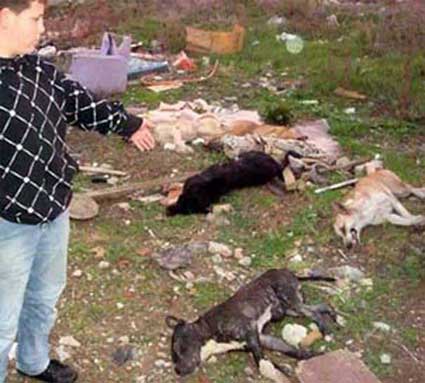 Why Adopt A Rescue Pet
Why Adopt A Rescue PetMass poisoning of dogs in Bulgaria
The Worst Thing You Can Do
The worst thing you can do is BUY a puppy from a pet shop or online, as you may find cruel puppy mills.
Avoid any breeder who seems to breed for profit. It is hard to tell, as all breeders will claim they are doing it for the love of the breed rather than profit.
How To Tell Good Breeders From Bad
Adopting a pet in need of a home is the best thing to do, but if you are going to go to a breeder, see the bad breeders page to learn how to spot a good breeder from a bad one. Bad ones may be fronts for puppy mills, which can make their operations look very professional.
Buying a puppy makes the problem worse by encouraging people and cruel puppy Mills to breed more puppies for money. If they breed for profit, they do not breed for the welfare of the dog or breed.
Millions of shelter dogs are put to death, while millions of newly bred puppies are bought instead. Many of these puppies also end up as rescue pets in shelters.
If Demand Drops, So Will Supply
It is actually better to not have any dog at all, than make matters worse by encouraging more breeding by buying a puppy. Pet shop puppies often come from cruel puppy farms, although none will ever admit that. If fewer puppies are bought, then fewer will be bred to meet the demand.
If they can’t sell them, they won’t breed them and there will be fewer unwanted dogs to put to death.
In the image, below, starving of dogs used for breeding is common in puppy farms, which supply the majority of pet shops. Dogs do not get veterinary treatment at puppy farms, let alone any affection.
Their medical conditions are left to get worse, suffering terribly until they die. Adopt a rescue pet instead of buying to avoid funding this cruelty.
Adopt A Rescue Pet Instead Of Funding Suffering
Please adopt a rescue pet instead of buying. If you buy, you could be funding suffering of puppy farm dogs, and the suffering of dogs on death row at pounds and shelters your buying contributes to.
Puppy farm dogs used for breeding for profit never see a vet. They have rotten teeth, eye infections, mange, are malnourished, and more. They are simply used for as long as they can be profitable for.
Once they have outlived their usefulness, they are inhumanely killed or left to starve. Puppies bred who are not perfect enough to sell are of no use. They are inhumanely killed, and have been known to be buried alive.
If you love dogs, please do not contribute to this cruelty. Any money you pay for such puppies means you are paying for the continuation of the cruelty to the breeder dogs.
Health Problems And Not The Breed You Bought
Another common issue for the buyer, apart from getting a puppy with many health problems in store, is that if you buy from a pet shop or breeder, they may claim the puppy is one breed, but it will turn out to be another, or a mixture, once it grows up.
There Is Nothing As Rewarding
As Saving A Rescue Pet’s Life
Dogs from puppy mills often come with many health and behavioural problems in store. By purchasing a puppy mill puppy, people are supporting and funding a very cruel and abusive industry.
Businesses who sell puppies supplied by puppy mills are very unlikely to admit they are from a puppy farms, as this reveals them as not caring about animals welfare and only being in it for profit.
Buying a puppy is no substitute for having saved the life of an innocent rescued dog. You will find that some rescues have puppies for adoption. The older dogs are the ones in more need, though. Please adopt a rescue pet and save the life of an innocent animal. Don’t take it’s chance away by buying.
Rescues Re-home Puppies And Kittens Too
Many people say they did not adopt rescue pets because they wished to mould newly bred puppies or kittens in to what they wanted. Most people who have experienced raising puppies or kittens know that is not realistic.
Rescues re-home many puppies, young dogs, kittens, young cats and other young animals. Some of these are pure bred. This means that if someone is determined to have a baby / young pet, they can still have this AND save a life by adopting a rescue pet. If You would like a specific breed, there are breed rescues that specialise in just specific breeds.
This is so much better than buying, which takes the chance of a home away from an innocent shelter animal and signs its death warrant, as well as also encouraging greedy breeding for money, which will cause many more innocent animals to be put to death.
To find puppies, dogs, kittens, cats, and other animals that need adopted in the UK and US in your area, you can see animals available at our list of animal rescues.
Many Shelter Pets Put To Death Are Only A Few Months Old
Shelters find themselves with a huge number of dogs only a few months old, after people have bought them, then found that they are unruly and take too much hard work and time to train.
Many of these puppies are included in the millions put to death every year because too many people continue the cycle by buying puppies when they could adopt a rescue pet instead.
Millions of perfectly adoptable kittens and cats are also put to death each year across the US and UK alone.
In the image, puppies and kittens are commonly found at shelters. Many puppies are bought without the owner realising how much time and work is needed to train a puppy. As a result, many puppies end up in shelters when they are just a few months old
All Pets Are Thoroughly Assessed
Some people are concerned about not knowing the background of rescue pets, especially shelter dogs, and worry that how the dog was brought up may affect its behaviour.
Firstly, not all dogs arrive at shelters as strays. In some instances, owners give dogs up due to changes and problems in their personal circumstances. The dog's background can sometimes be known as a result. Secondly, most re-homing centres assess each dog thoroughly before considering re-homing it.
Shelters can also match dogs to a prospective owner’s requirements.
One Quarter To One Third of
Shelter Dogs Are Purebred
In addition, people say that they wanted a specific breed and that shelters ‘wouldn’t have that breed’. In fact, around one quarter to one third of all shelter dogs are pure bred.
If you can’t find the rescue pet you want in your nearest shelter, go to our list of animal rescues. There you will find more rescues in your area, as well as further afield, and see animals they have available for adoption.
People often travel miles to find a breeder, so it makes sense to be willing to travel to save an innocent life of a specific breed.
Questions You May Be Asked Donations
And Possible Home Checks
If you would like to know about the questions you may be asked before being able to adopt an animal, and about any costs involved, or learn about home checks, please go to the adopting a shelter dog page.
For links to animal shelter websites showing animals available for adoption, go to the list of animal rescues page.
 Why Adopt A Rescue Pet
Why Adopt A Rescue PetAnimal Shelter Links
Animal Fostering And Sponsoring
If you cannot adopt, you may be interested in fostering or sponsoring animals instead.
Temporarily fostering animals in need – until they go to permanent homes or back to the wild – saves innocent lives. Millions of unwanted pets are put to death every year due to not being enough rescue places. You can help reduce that number of senseless deaths by fostering.
There are some animals at ‘no kill’ animal sanctuaries and re-homing centres who do not find homes. By sponsoring or distance adopting one of these animals, you are helping to secure that animal's future with the
organisation.
For more details about fostering and sponsoring animals, see the Animal Fostering And Sponsoring page.
Pet Quarantine – Adopting From Abroad
UK quarantine laws have finally come in to line with the EU Pet Movement Scheme, which has been running successfully for nearly a decade. It means that it takes just 21 days for your pet to move from one EU country to another and be reunited with you. This also applies to a list of non EU countries, such as Australia and the US.
Non EU countries not included on this list require a three-month wait, which has also time taken off it.
These reductions in quarantine times are more humane, and they also make adopting from abroad easier.
Think You May Like To Adopt, Sponsor
Or Foster An Animal?
If you feel you may like to sponsor or adopt an animal, you can find animals currently available through rescues on the list of animal rescues page. If you would like to foster a pet, you can ask the rescues if they need foster homes. Most do.
Joining the rescue's social media groups and pages is also a way to stay updated with the animals they get.
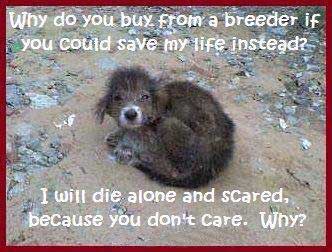 Why Adopt A Rescue Pet
Why Adopt A Rescue PetDon’t let this happen – Adopt, Foster or Sponsor a pet
Many Other Ways You Can Help Stop Animal Suffering
Here are more ways to earn and raise funds to help animals in need.
If you cannot adopt, foster or sponsor, there are still things you can do.
Cross Posting
You can help by cross-posting pets looking for rescue spaces on social media. If you have any spare cash, you can donate to the animals rescue funds.
You cross posting or donating could be the difference between the animal's life being saved or not.
Animal Rescue Volunteer
Volunteers are vital to animal rescues to keep them running. You can help in a variety of roles.
Raise Awareness Of the Issues
Raise awareness by sharing the information from this site on social media. For instance, you can share information about animal adoption, the issue of pet abandonment, and bad breeders. By doing this, you will help stop animal suffering.
Another way of raising awareness of animal cruelty issues is by educating people with what you wear.
Many Other Ways…
This website lets you know of many additional ways to help stop animal cruelty.
There are ways that will suit everyone, no matter what their personality, lifestyle, energy level, or circumstances.
Share these ways with other people, to get more people helping animals.
Educating people about the cruelty that goes on is another way to help. You can find this information in the Types Of Animal Cruelty section of this site. Share it on social media to help animals.
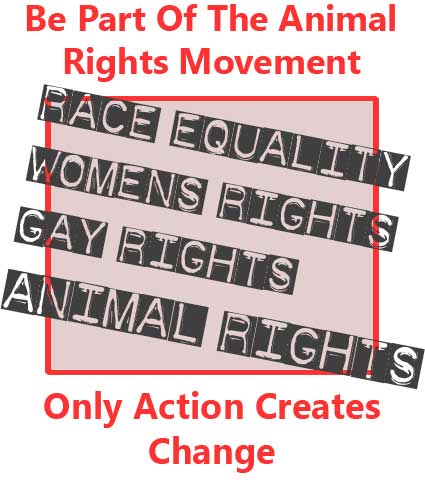 Be Part of the Animal rights Movement
Be Part of the Animal rights Movement